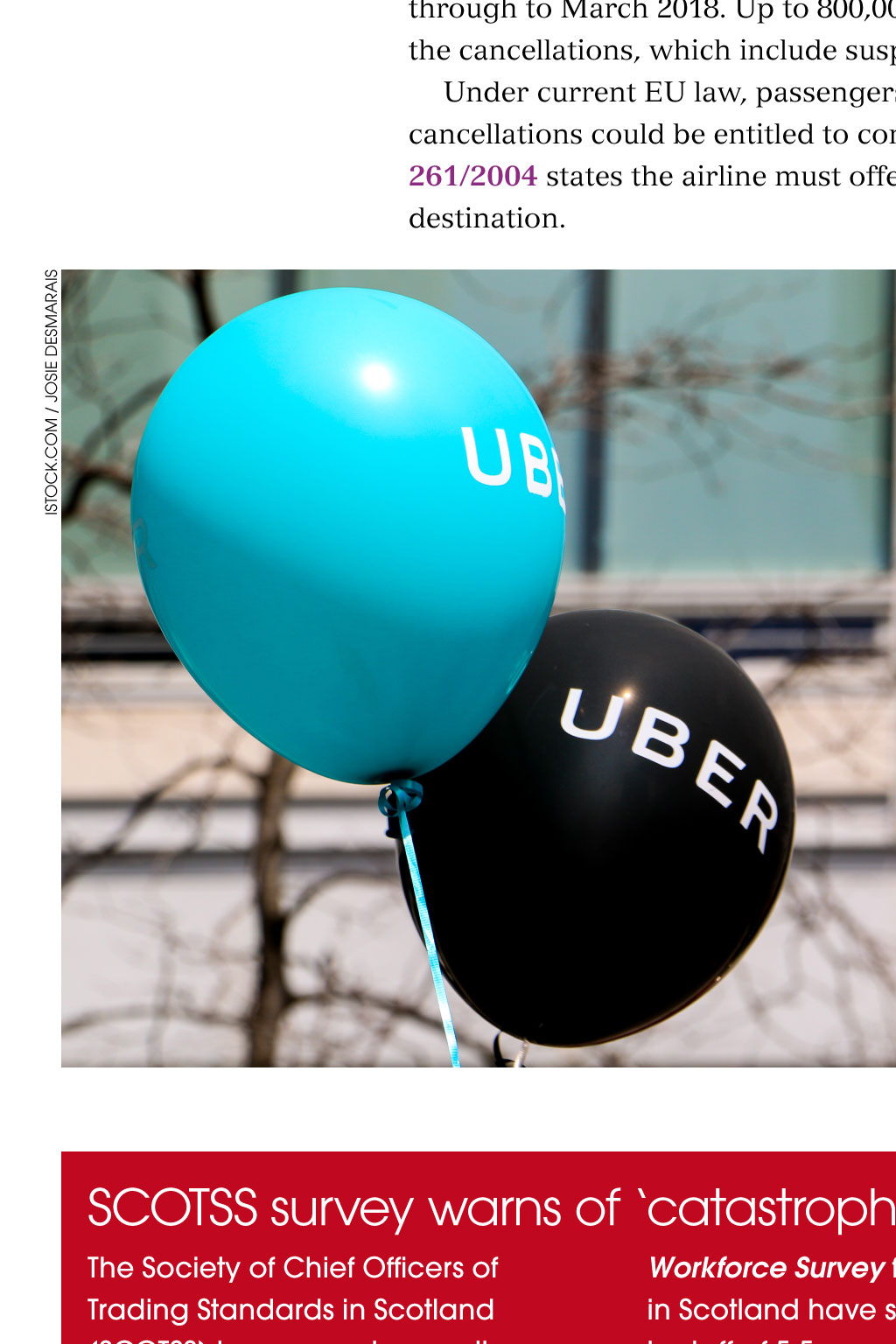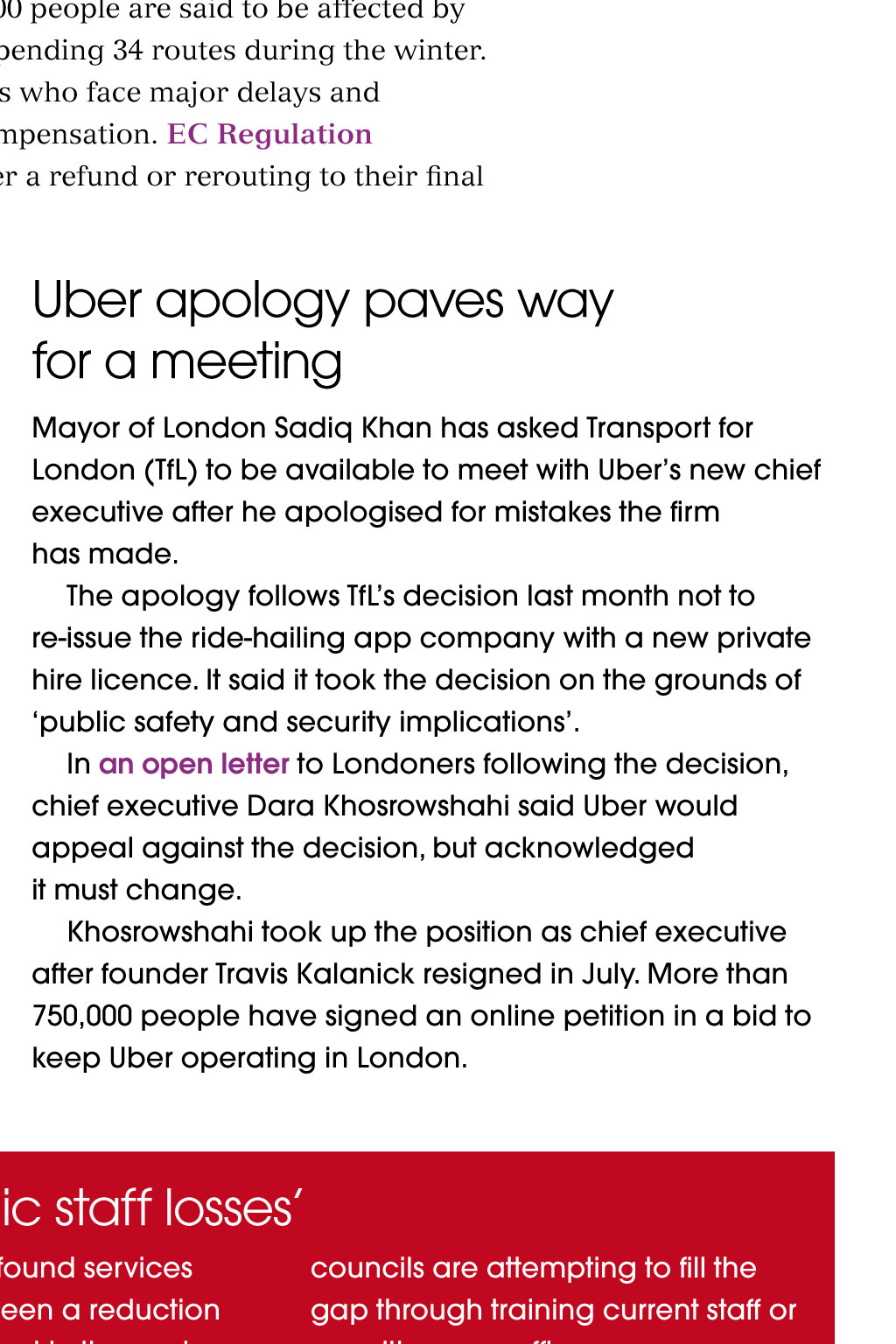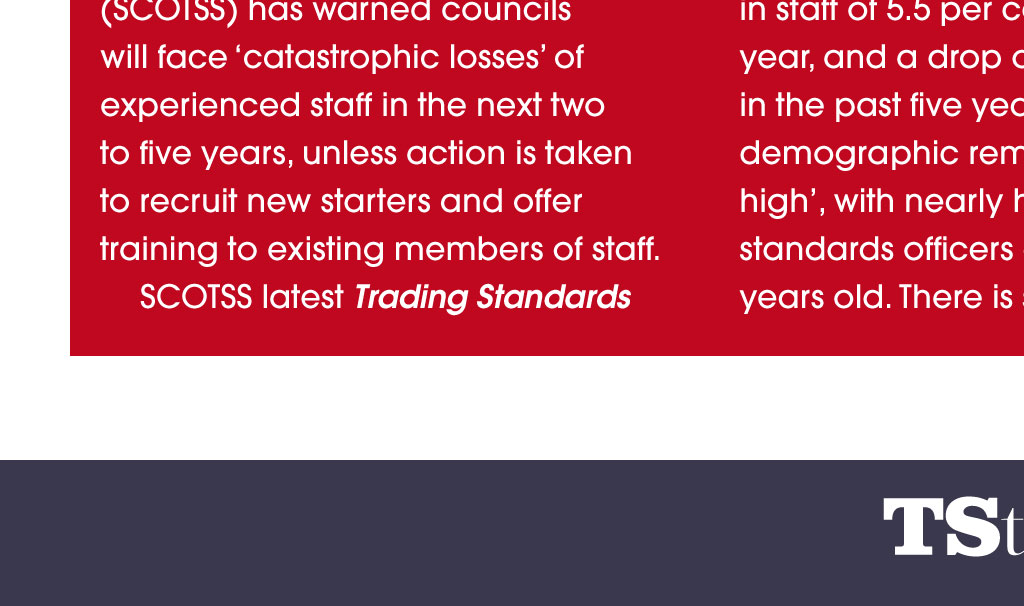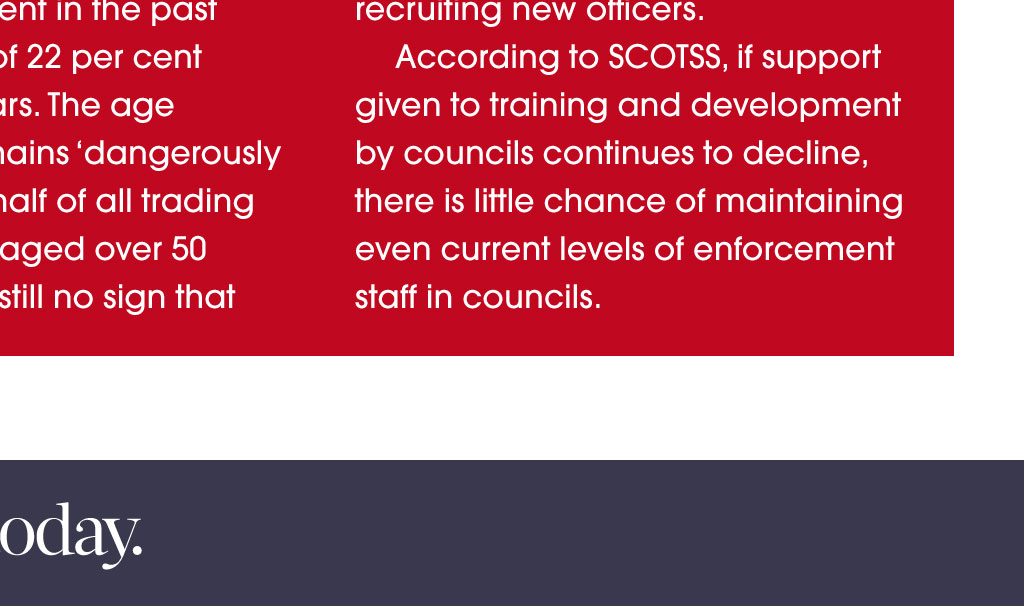














News CTSI calls for national regime on product safety CTSI has repeated its call for an independent, national trading standards enforcement system for product safety, following demands from consumer champion Which? for manufacturers to do the right thing and stop producing plastic-backed, cold-appliances from non-flame retardant materials. CTSI director of policy Adam Scorer told BBC News: We have a situation where the product safety responsibility is split between 200 local authorities cash-strapped doesnt cover it. We need a product safety regime across the UK thats able to make sure unsafe products dont get into peoples homes. That requires a national skilled body not within local authorities of trading standards professionals with the expertise, in order that we have a product safety regime thats fit for purpose. He added: We have to learn from tragic events, like Grenfell. Its not that the standards are necessarily being breached, its that we need stronger standards. Following a recent review of cold-appliance safety, Which? labelled the current standards as deficient and inadequate. Though unlikely to be the cause of house fires, non-flame retardant materials increase the risk of accelerating the spread of fires. While most cold appliances meet British standards, the materials used are not sufficiently safe and could endanger lives. Speaking in Prague, CTSI lead officer for consumer and product safety Christine Heemskerk said she strongly supported calls for better standards. Addressing the European consumer body for standards, ANEC, and various other standards bodies on progressing safety changes, she said: To protect consumers, we must ensure that standards are relevant and reviewed frequently to improve safety. While the standards for testing traditional products such as fridges and freezers are suitable, factors such as the increasing cost of raw materials and changes in design can cause new safety issues to emerge that the standard no longer covers. Fellow lead officer Mark Gardiner praised the renewed interest in the issue. It can only increase the pressure on manufacturers to exceed the current standard, and on standards makers to address this issue in the [European] harmonised standard, he said. Product safety: what CTSI says CTSI first called on governments in July to drastically re-evaluate the way trading standards and product safety is regulated and funded. The institute wants them to: Establish, or commission, a website to offer a single information source for consumers and others on product recalls and corrective actions Establish a central, technically expert product safety team to provide national leadership, conduct forensic market surveillance and support frontline trading standards Make continued membership of the European RAPEX early warning system a priority at the beginning of Brexit negotiations Reshape trading standards into larger, strategic units that can work with a central product safety team to deliver the interventions necessary to keep unsafe products off the shelves and out of peoples homes. runcorn rogues sentenced The Intellectual Property Office (IPO) has published a report on the successes of trading standards in tackling IP crime during the past year. The report trading Standards Successes, which came out at the same time as the IPOs annual Crime and Enforcement Report 2016/17 highlights a small example of the IP enforcement work undertaken by trading standards officers (TSOs) from across the UK. This includes tackling the sale of counterfeit tobacco, DVDS and clothing. It shows the various methods used by officers, including policing local IP crime through social media and working with events promoters and venue owners to target brand frauds, as well as links to other crimes, such as drugs and immigration offences. The report aims to give services the opportunity to learn from each other and develop best practice, using examples where TSOs have helped to bring the perpetrators to justice. One rogue trader was jailed for 19 months and another given a two-year supervision order after they duped elderly residents into paying for work that was never carried out. Keith Gilbert, of Sandymoor, and Mark Miles, of Castlefields, persuaded people to pay upfront for nonexistent building work, Liverpool Crown Court heard in June. But, because of a brain injury sustained by Miles in 2015, the judges sentencing powers for him were limited, despite some offences being committed after the injury took place. The proceedings against Miles were conducted under the Criminal Procedure (Insanity) Act 1964 and he was sentenced to a two-year supervision order the maximum possible in such circumstances. Gilbert was sentenced to 19 months in prison and a confiscation order awarded for 17,190, to be used as compensation for the victims. Sentencing took place on 29 August. The case was brought by Halton Trading Standards. ISToCk.Com / frANCkrEPorTEr Showcasing success Ryanair bows to pressure by CAA over passenger redress Ryanair has bowed to pressure from the Civil Aviation Authority (CAA) to offer more information on options available to passengers affected by the disruption to its flights. Andrew Haines, the CAAs chief executive, said: It appears that Ryanair has now capitulated. The CAA launched enforcement action against Ryanair for persistently misleading passengers with inaccurate information about their rights, after the airline cancelled thousands of flights because of a staff holiday mix-up. The CAA first contacted the airline on 18 September, after Ryanair failed to correctly inform passengers of their rights concerning rerouting flights and refunds available if extra expenses were incurred. When a further 18,000 flights were cancelled on 27 September, the CAA launched enforcement action against the airline. Late on 29 September, Ryanair contacted the regulator and said it had emailed all consumers affected by the cancellations to explain their rights. Our job is to protect passengers rights and ensure that all airlines operating in the UK are fully compliant with important consumer laws, Haynes said. Where we find that an airline is systematically flouting these rules, we will not hesitate to take action, to minimise the harm and detriment caused to passengers, as we have done with Ryanair. We will review their position in detail and monitor this situation to ensure that passengers get what they are entitled to in practice. The UK European Consumer Centre has also published guidance for consumers left stranded by Ryanairs decision to cancel flights through to March 2018. Up to 800,000 people are said to be affected by the cancellations, which include suspending 34 routes during the winter. Under current EU law, passengers who face major delays and cancellations could be entitled to compensation. EC Regulation 261/2004 states the airline must offer a refund or rerouting to their final destination. ISToCk.Com / JoSIE DESmArAIS Uber apology paves way for a meeting Mayor of London Sadiq Khan has asked Transport for London (TfL) to be available to meet with Ubers new chief executive after he apologised for mistakes the firm has made. The apology follows TfLs decision last month not to re-issue the ride-hailing app company with a new private hire licence. It said it took the decision on the grounds of public safety and security implications. In an open letter to Londoners following the decision, chief executive Dara Khosrowshahi said Uber would appeal against the decision, but acknowledged it must change. Khosrowshahi took up the position as chief executive after founder Travis Kalanick resigned in July. More than 750,000 people have signed an online petition in a bid to keep Uber operating in London. SCoTSS survey warns of catastrophic staff losses The Society of Chief Officers of Trading Standards in Scotland (SCOTSS) has warned councils will face catastrophic losses of experienced staff in the next two to five years, unless action is taken to recruit new starters and offer training to existing members of staff. SCOTSS latest Trading Standards Workforce Survey found services in Scotland have seen a reduction in staff of 5.5 per cent in the past year, and a drop of 22 per cent in the past five years. The age demographic remains dangerously high, with nearly half of all trading standards officers aged over 50 years old. There is still no sign that councils are attempting to fill the gap through training current staff or recruiting new officers. According to SCOTSS, if support given to training and development by councils continues to decline, there is little chance of maintaining even current levels of enforcement staff in councils.